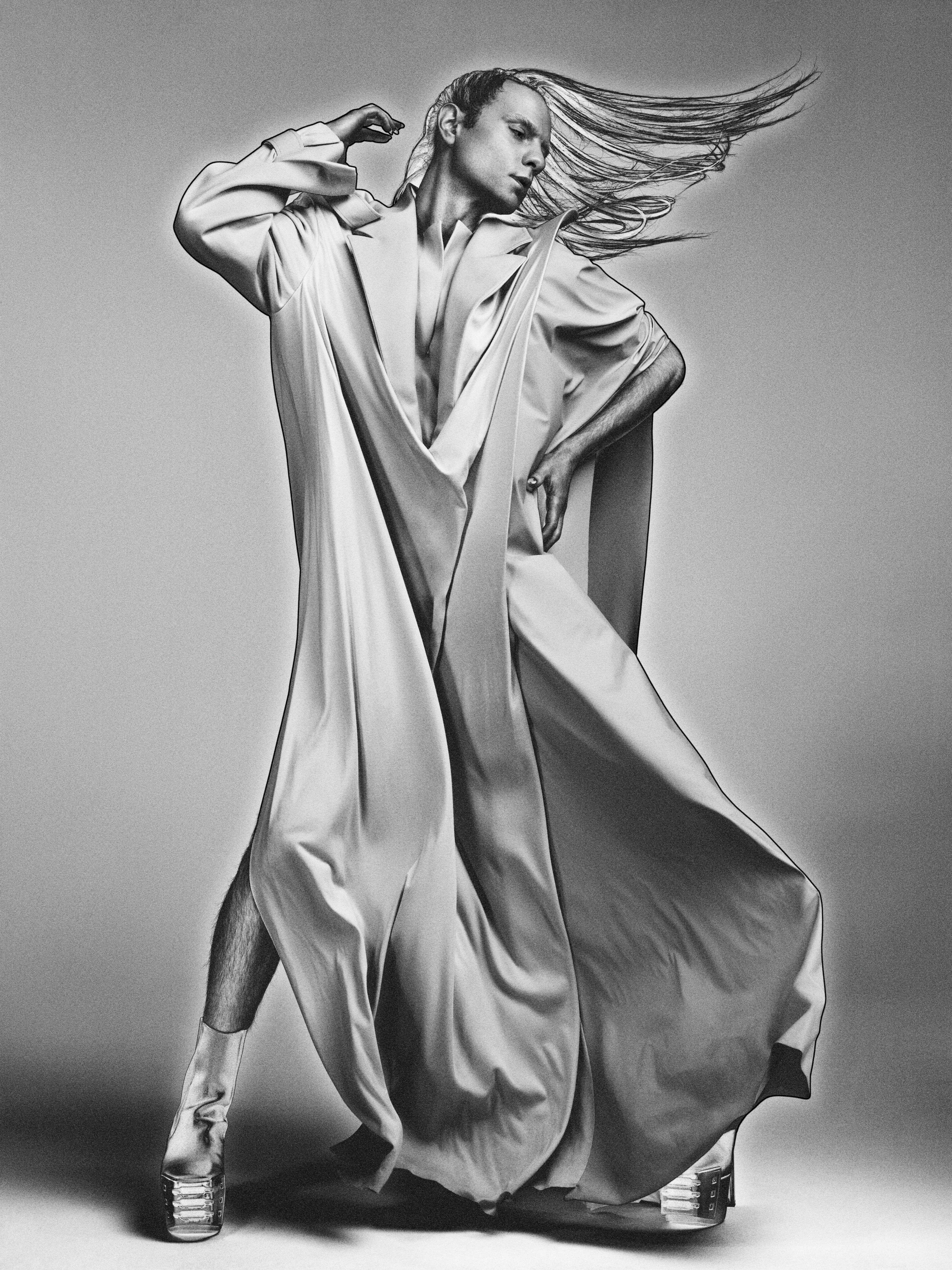
Coat by Yike Chen. Boots by Rick Owens.
Jordan Roth Embraces His Fullest Self
If most Broadway producers you could name are known for either publicity stunts or disreputable practices, Jordan Roth stands out for his sense of innovation. His company, Jujamcyn Theaters, has instituted contemporary, practical policies on everything from camera use (allowed before and after shows for that essential Playbill snap) to the size of ice cubes (smaller and less clinky), and has a sharp grasp on staging modern crowd favorites. When New York City Center’s two-week concert staging of Into the Woods became a sell-out smash in May 2022, for example, Roth snatched up the simple production for a transfer and turned it into one of the year’s must-see Broadway events.
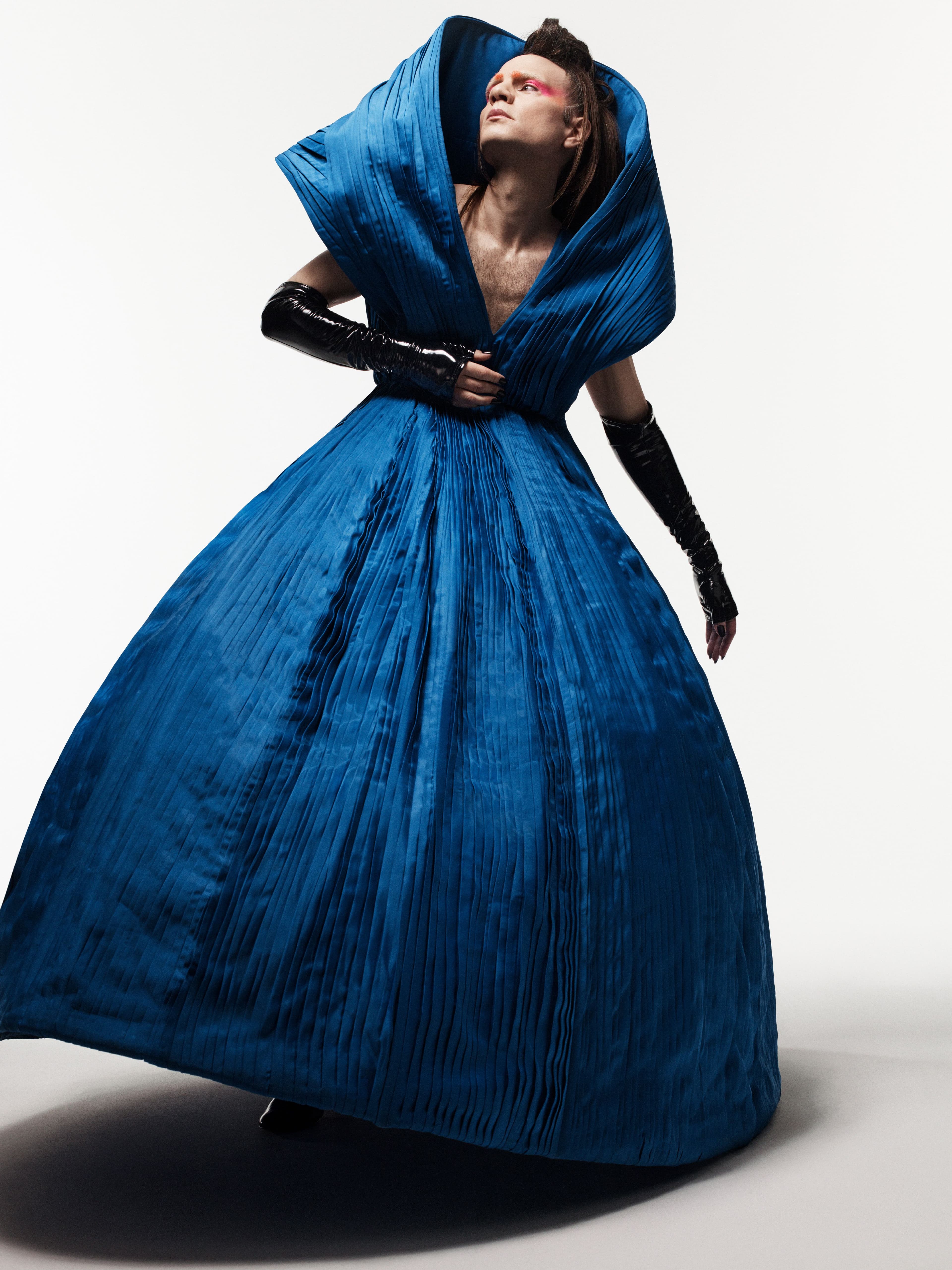
Dress by Buerlangma. Gloves by Wing and Weft. Boots by Rick Owens.
And, of course, there’s the clothes. An avid fashionista, Roth’s gender-bending looks, both onstage and off, are often as attention-grabbing as the shows he puts on. His sense of expression—bombastic, otherworldly, and avant garde—is based on a unified sense of the here and now. Over the phone at 10:30 AM (a cool five hours after he’d woken up that day), he tells me that it was not always this way.
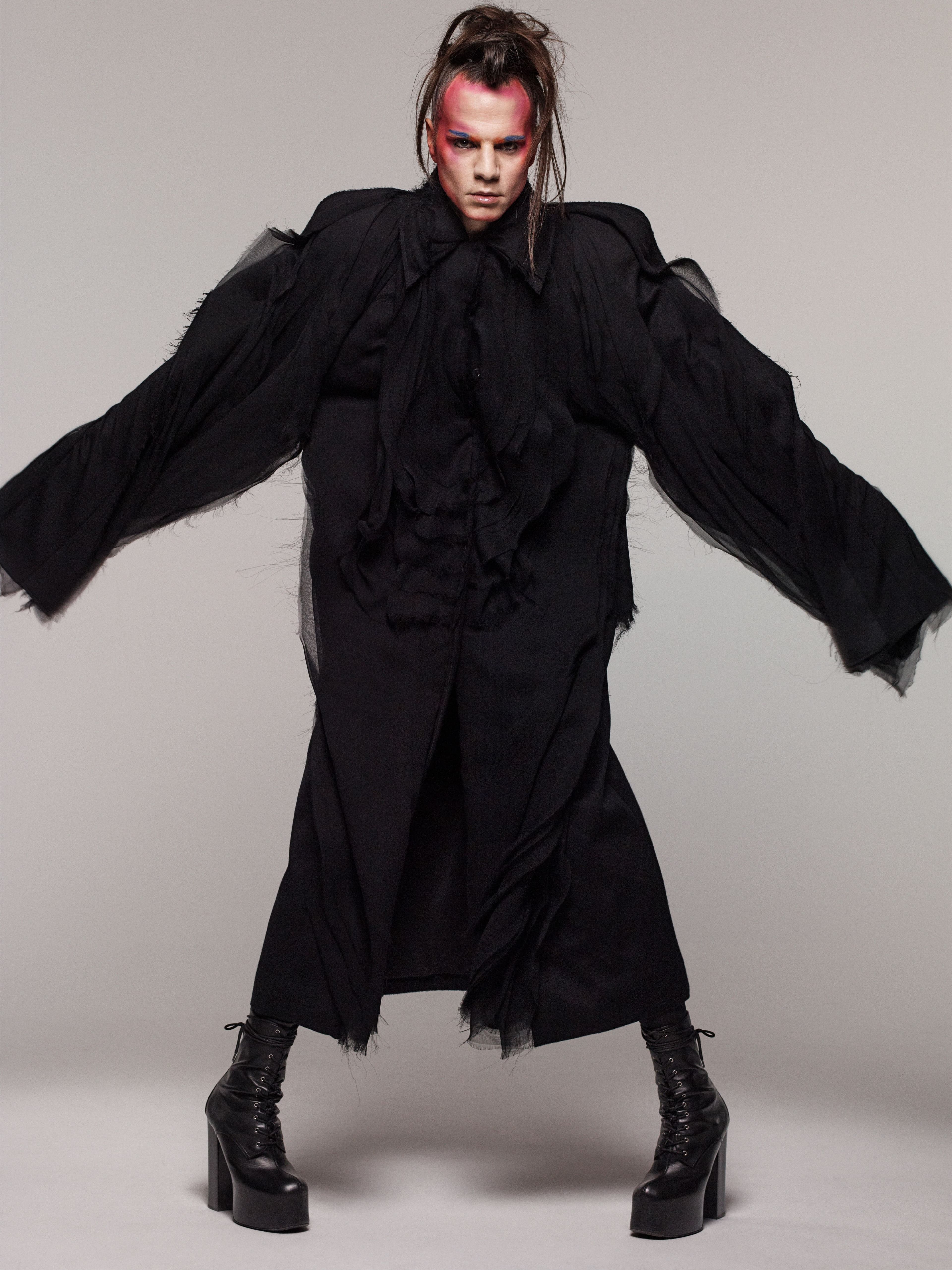
Coat by Lùchen. Boots by Saint Laurent.
Born to a billionaire real estate developer father, the Manhattanite’s early years were the buttoned-up New York kind, though his producer mother Daryl exposed him to the arts often. While he loved studying theater and philosophy at Princeton, he found it a very homogeneous environment, where blending in was the default. “I had a year of ’blend,’ then three years of very much not blending,“ he recalls. “Fashion has always been a vocabulary for me, and I think what has evolved over time is the extent to which I allow my canvas to be bigger or smaller.“ After coming out in his sophomore year there, Roth began to experiment with personal appearance, embracing his more flamboyant sartorial inclinations. “The other swing of the pendulum came once I was actively not hiding—as opposed to, and I think very much in reaction to, actively hiding—neither of which are self-generated states,“ he adds. “They are in reaction to one another: of the other’s perception, or our own perception of what theirs will be.“
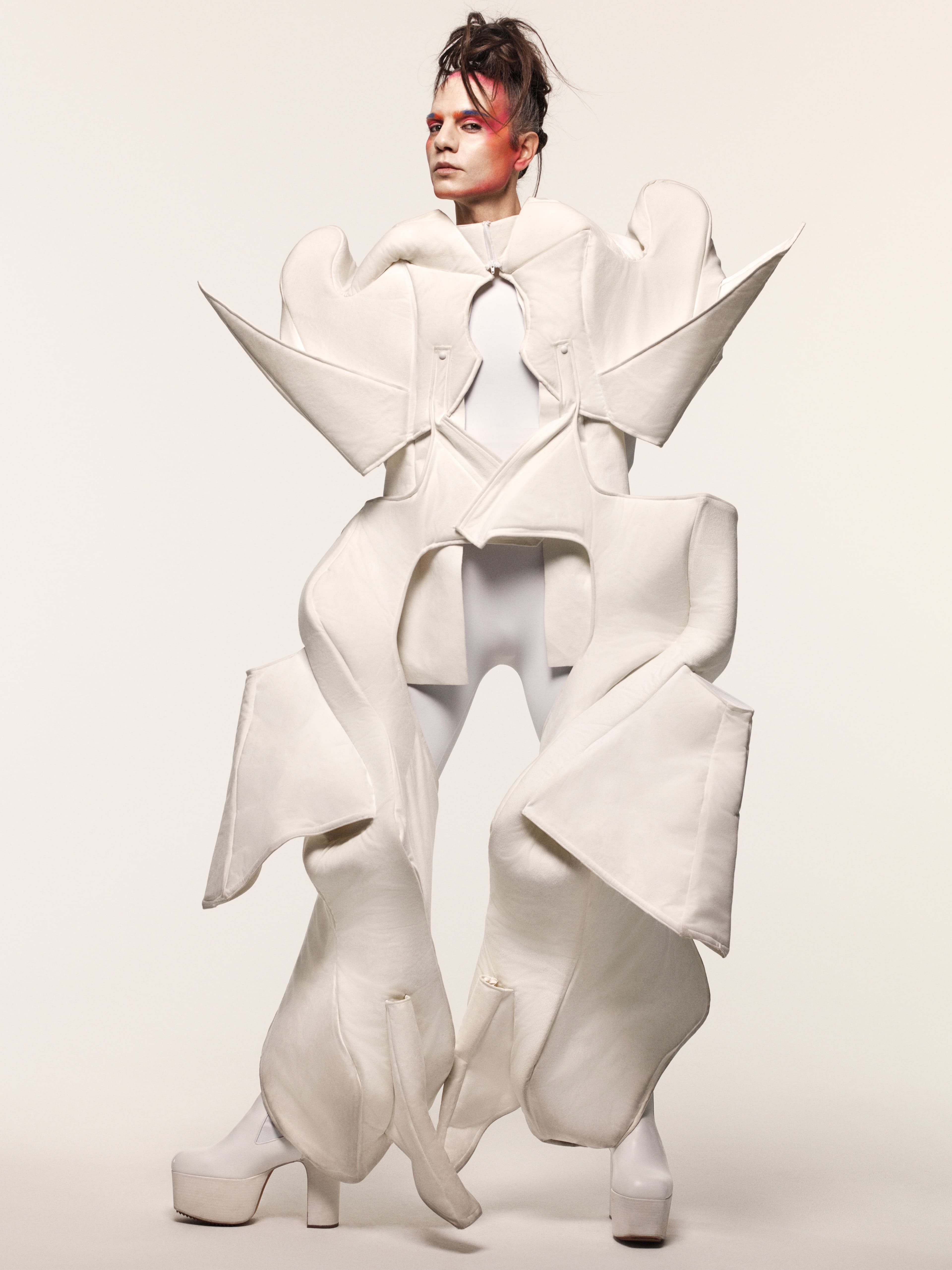
Cape by Yuze Lix. Bodysuit by Wolford. Boots by Rick Owens.
Right after college, he produced the immersive Midsummer Night’s Dream adaptation The Donkey Show in New York, his first foray into theater, which ran for six years Off Broadway. The success of the disco-themed staging flung him directly into the spotlight as a producing wunderkind. Following that with a Broadway revival of The Rocky Horror Show, Roth found himself in a new environment to which he tried to conform at first: “I started producing theater very, very young, so I created this uniform of authority and professionalism which served me very well, until it didn’t—until it felt restrictive and I didn’t realize why I was doing it.“ This, again, caused a stylistic metamorphosis. “Sometimes our visual identities fuse to us, and we forget that that’s only a part of us. I don’t consider that I, or any of us, am ever in stylistic stasis. I don’t know that I have any regrets, but I would say that I know how I felt then. I definitely felt like I was pushing boundaries and stepping outside lines plotting. Certainly, people around me were reacting as though that were the case.“
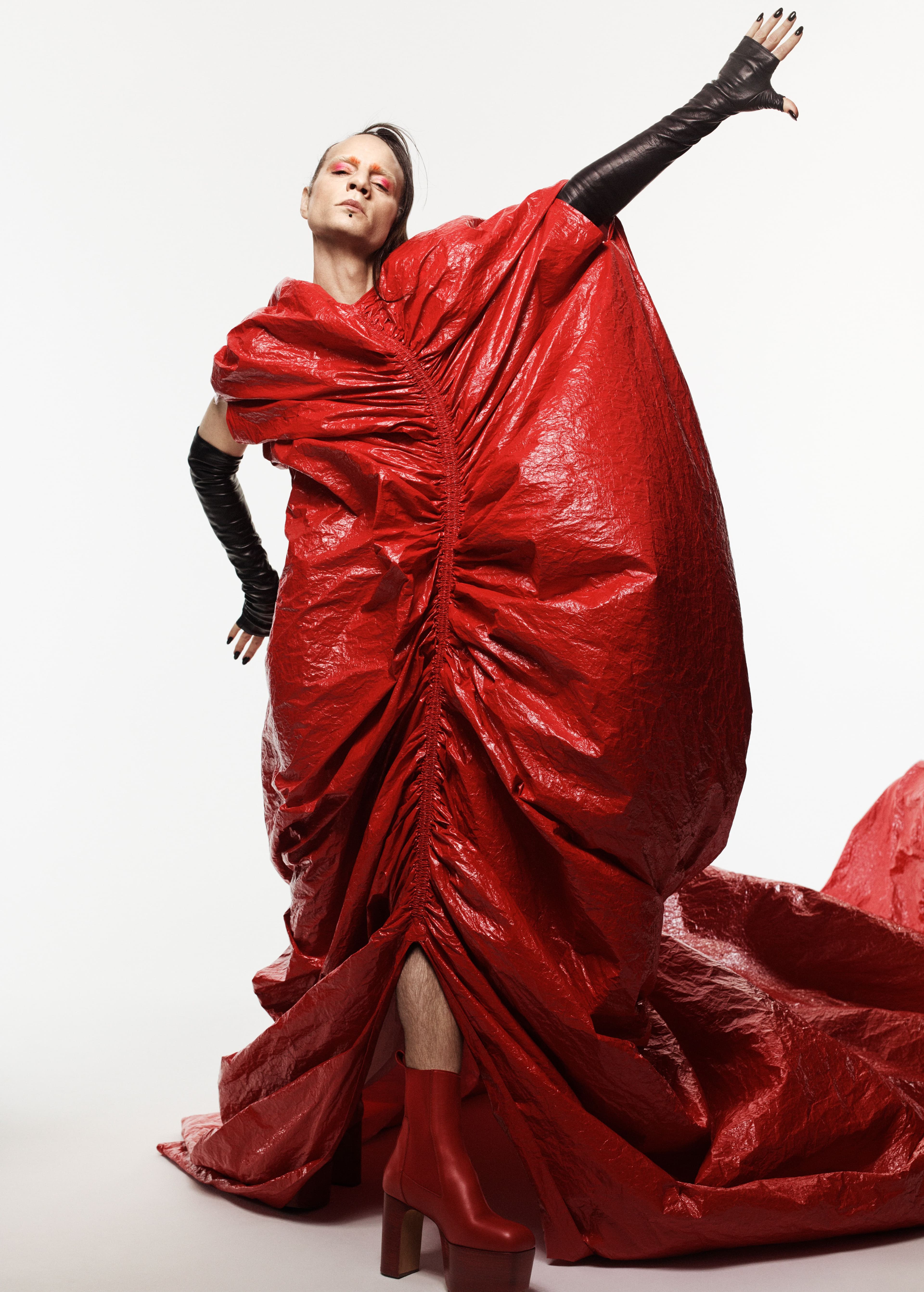
Dress by Buerlangma. Gloves by Wing & Weft. Boots by Rick Owens.
Roth is self-reflexive about his presentation, which he calls a rigorous process attuned to the kinesthetic energy clothes ignite in his body. That pendulum which swung some time after college has resulted in some outlandish looks, and I wonder if he ever considered his outfits as having gone too far. Being the inquisitive type, he asks us to unpack the question together. “Too far, I think, is a phrase of deep meaning and injury for so many of us, especially LGBTQ people,“ he muses. “’You’ve gone too far, you’re too much’—those are accusations many of us have grappled with, and it often comes during the formative years when we’re trying our very best to hide. It’s something I’ve unpacked over time. There’s often a moment in the process of dressing, mostly for bigger events than daily dressing—though it definitely started in that realm—where I think, ’Well, I have done it now. There was a line after all.’ But that’s usually a sign to myself that I’m afraid, which is okay.“
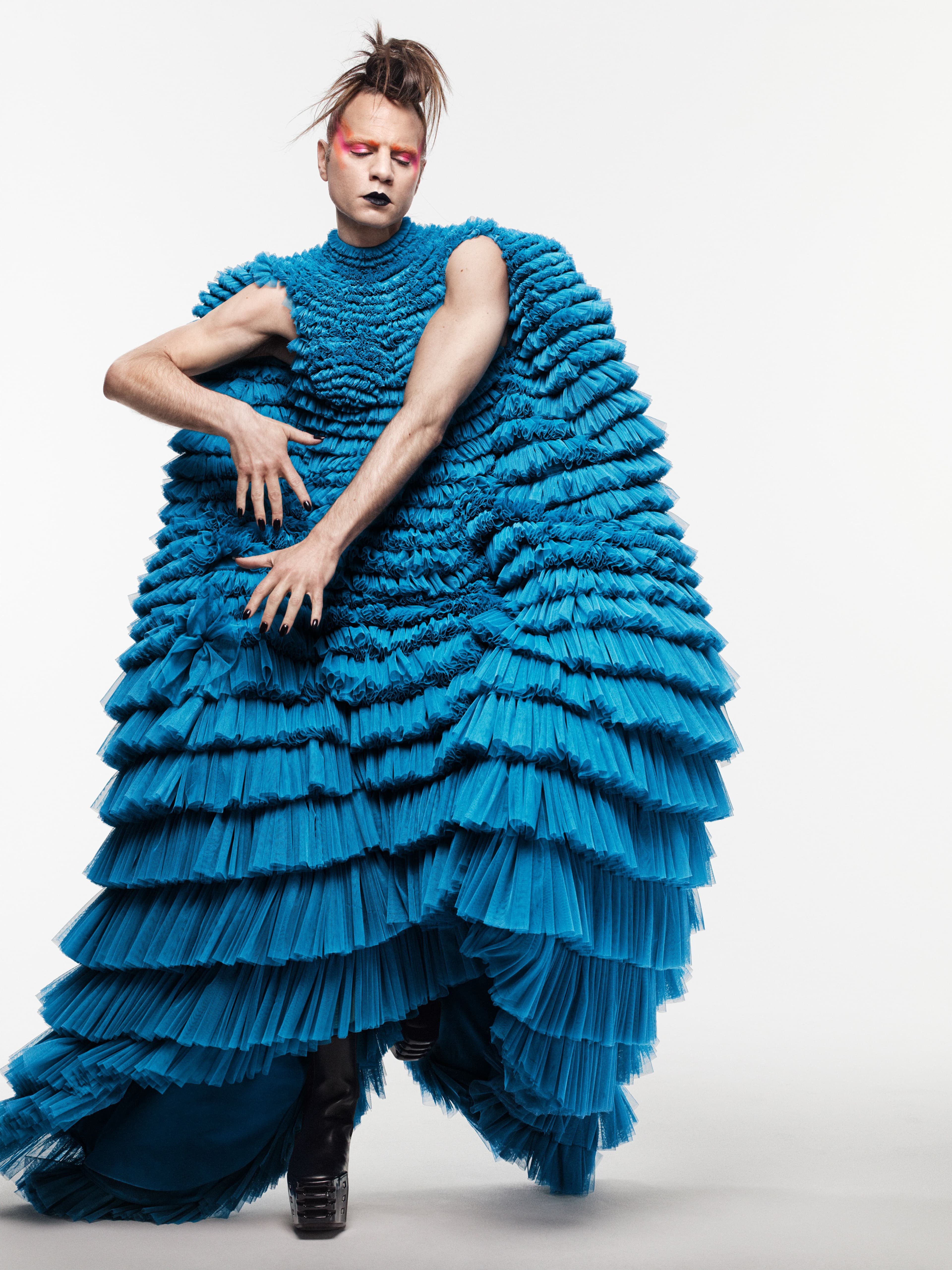
Dress by Lùchen. Boots by Rick Owens.
Those moments are usually overcome with a little self-hand holding, and Roth says that he feels most himself when engaging in these types of solo conversations: “It’s all about returning to the work, intellectually or viscerally.“ For the seven-time Tony winner, a preoccupation with fashion just means another opportunity to begin an additional creative process—a chance to add a new dimension to an already imaginative experience. He tells me about his recent trip to the Beacon Theatre to see burlesque legend Dita Von Teese and being enthralled by the stylish community that has assembled around her. “I was so thrilled to see how her audience dressed; they were dressing for her, for a heightened experience,“ he recalls. “The effort and thought they put into their clothes—that I’m sure took many days or weeks of planning—then elevated the moment we were all having as we connected with each other and added to our collective communal experience.“
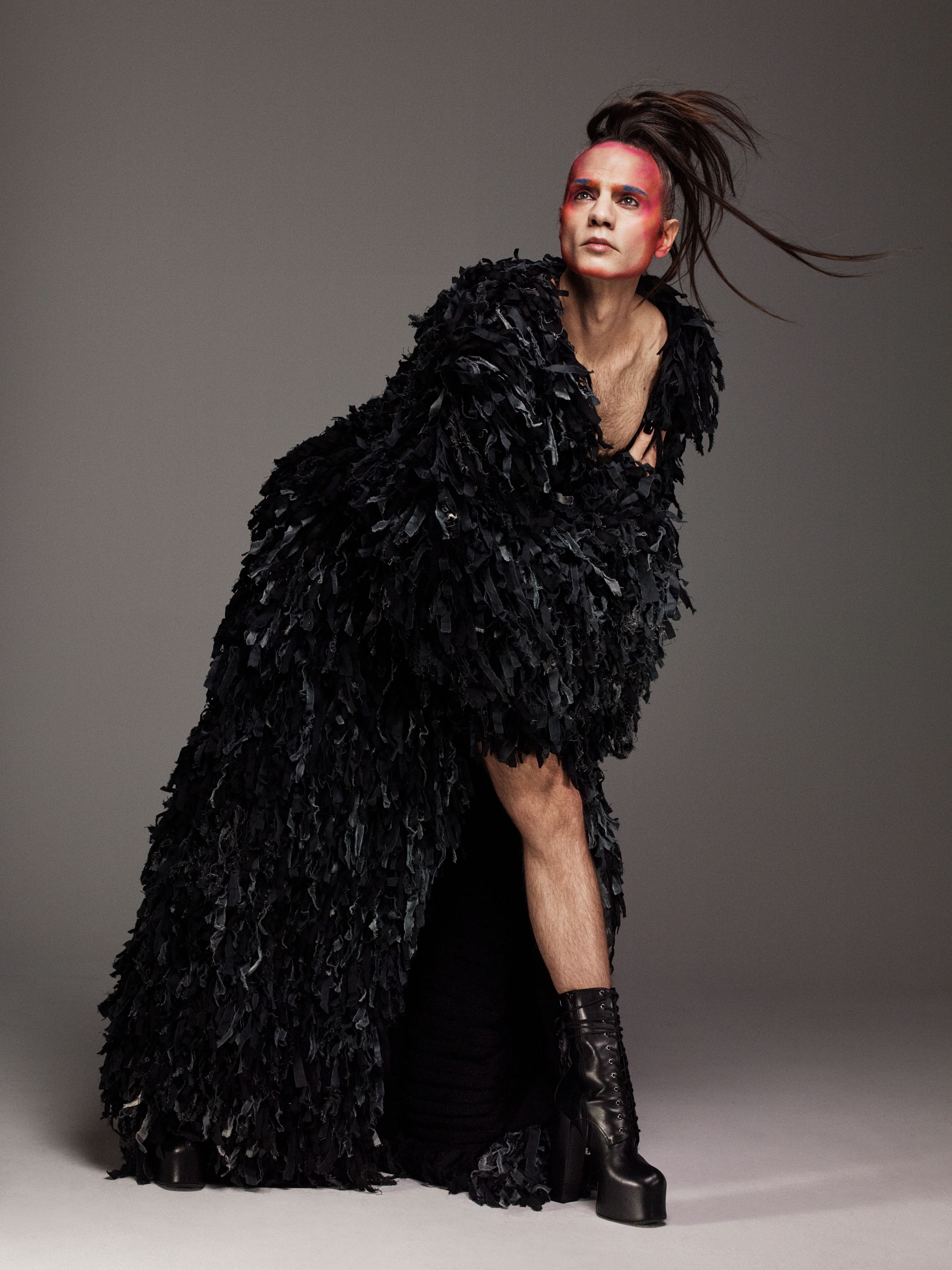
Coat by Yuze Lix. Boots by Saint Laurent.
The producer has certainly reflected this ethos back onto his projects, making splashy events out of each of his openings and theatrical milestones, like Lea Michele’s star-studded opening night in Roth’s production of Funny Girl. “I’ve always been focused on theater as a have-to-be-there experience,“ he says. “One of theater’s core fundamentals is gathering in space together, so that begs a fundamental question: Why? When theater is at its most magnificent, it is because a creative team has come to a glorious, thrilling, deeply compelling answer to that.“ Does that mean matching the onstage drama with his own sartorial choices? “It’s not really my conscious intent, just who and where I am at the moment, so I bring that to whatever I’m doing and, a lot of the time, that’s theater,“ he says. “The impulse doesn’t so much come from what I want theater to be, but it is absolutely a result of where I’m at.“
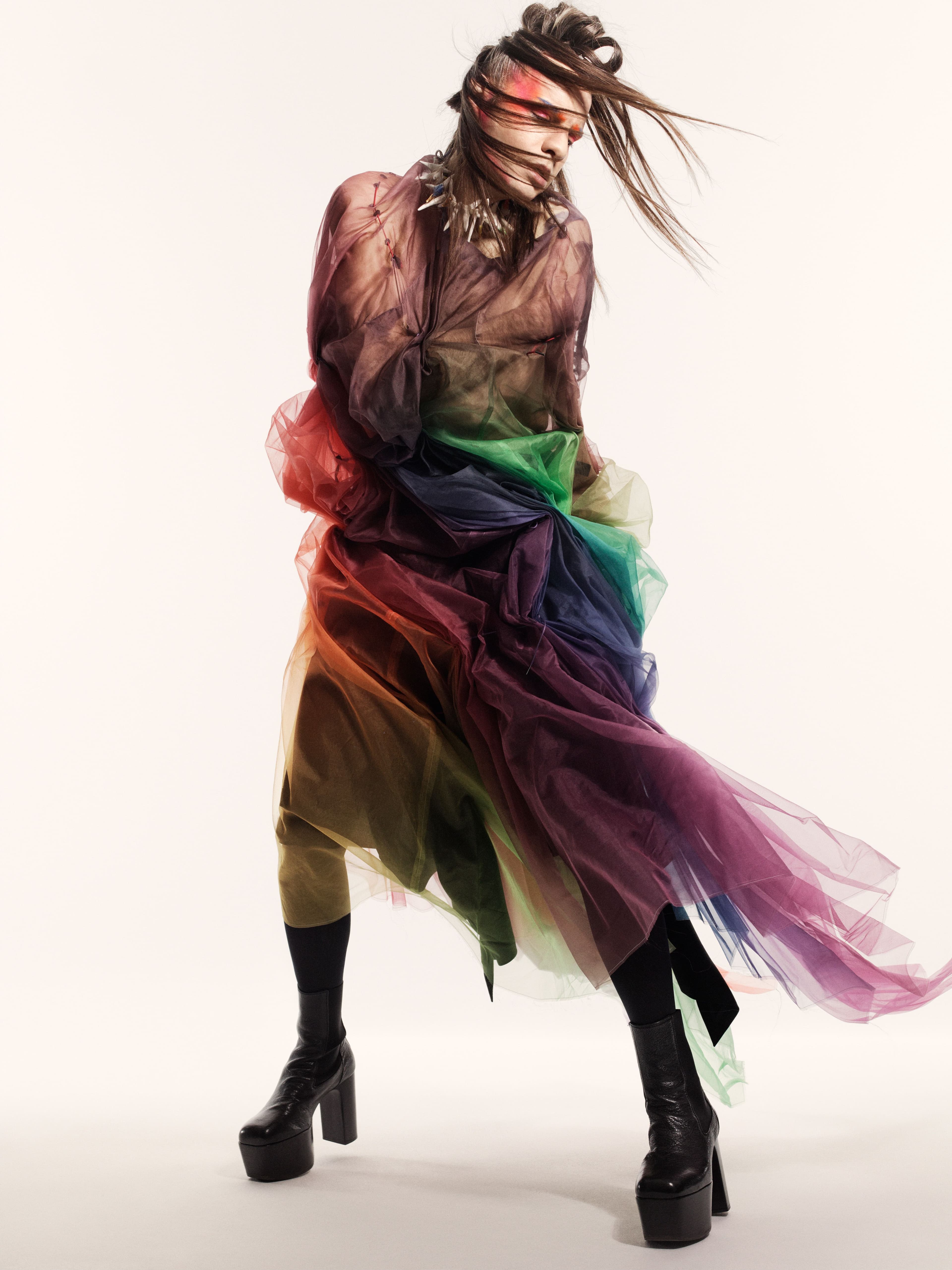
Dress and necklace by Yuima Nakazato. Tights by Falke. Boots by Rick Owens.
Read this story and many more in print by ordering our sixth issue here. Roth has selected the David Lynch Foundation, which addresses trauma and toxic stress through education around Transcendental Meditation, as the recipient of proceeds from direct sales of his cover of CERO06.
As a nonprofit arts and culture publication dedicated to educating, inspiring, and uplifting creatives, Cero Magazine depends on your donations to create stories like these. Please support our work here.
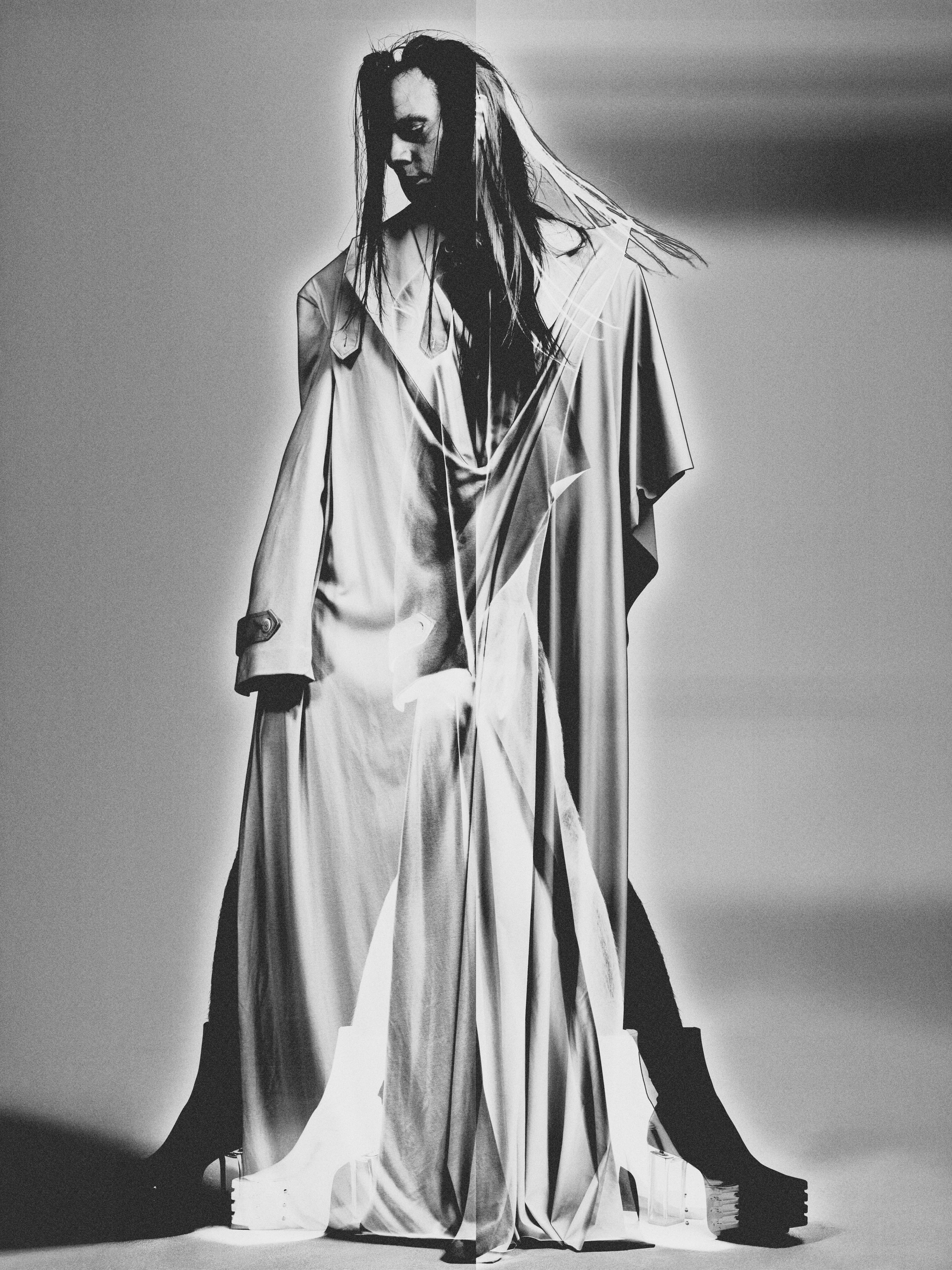
Coat by Yike Chen. Boots by Rick Owens.
As a nonprofit arts and culture publication dedicated to educating, inspiring, and uplifting creatives, Cero Magazine depends on your donations to create stories like these. Please support our work here.






